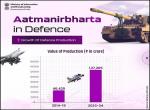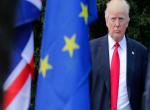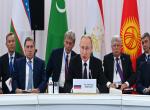Iran’s current Chief Justice Ebrahim Raisi has been elected as the new President receiving 61.95 percent of total votes. The presidential election held on 18 June 2021 saw the lowest turnout at 48.8 percent since the 1979 Islamic Revolution. Interestingly, the no vote option received more votes than the first runner up, Mohsen Rezaei followed by the only moderate candidate, Abdolnasswer Hemmati.1 Raisi would join office in August 2021.
Raisi’s victory has consolidated the gains for the conservative faction that already controls the parliament. He enjoys good relationship with the clerical hierarchy, intelligence, security forces and the Supreme Leader, Ayatollah Ali Khamenei. Critics have expressed concerns over possibility of renewed social oppression including arrests of journalists and activists and further curbs in the already restricted cyber space. Raisi’s public popularity is however still fragile, he is therefore likely to refrain from provoking anger from the public that is already frustrated with poor economic situation and general political apathy.2 Raisi’s top priority after coming to office would be getting the sanctions lifted, especially on the oil and banking sectors which are contingent on effective nuclear diplomacy. Raisi on economic issues has emphasised on anti-corruption agenda, self-reliance and improved economy to uplift the current situation.3
Role as Chief Justice
Raisi after loss in the 2017 Presidential election against incumbent President Hassan Rouhani was appointed the Chief Justice two years later in 2019. It offered him an opportunity to improve his public image and media exposure. During his tenure as the Chief Justice, he projected himself as a judicial reformer promoting good governance. He was appreciated for stern action against corruption penalising at least 60 judges and few officials for financial wrongdoing including Sadeq Larijani’s economic deputy Akbar Tabari; Hassan Rouhani’s brother Hossein Fereidoun; Hadi Razavi, son-law of Mohammad Shariatmadari, Minister of Labour, cooperatives and social welfare etc. Rouhani’s Chief of Staff, Mahmoud Vaezi and Vice President Eshaq Jahangiri were also investigated during Raisi’s tenure in the judiciary. These actions were backed by Khamenei that granted special powers to the judiciary under Raisi to undertake swift and just legal action against financial crimes to confront economic corruption.4
He built his image as an anti-corruption and a pro-poor figure prior to the recent election. Raisi’s steps against corruption have been backed by the IRGC and in fact, Commander Major General Hossein Salami in June 2020 had given credit to Raisi for his anti-corruption agenda which helped in building public’s trust in the ruling establishment’s commitment to help the oppressed section of society. He extended IRGC’s support to the judiciary in ensuring public health, security, promoting justice and fighting corruption.5 In order to garner international credibility and help his chances in election, he was sent for a high profile diplomatic visit to Iraq in February 2021. During his visit, he met with President Bahram Salih and Prime Minister Mustafa Al-Kadhimi.6
Supreme Leader’s Man
Raisi’s viability as the leading candidate was backed by the Supreme Leader, Ayatollah Ali Khamenei. Dr. Sanam Vakil writing at the Chatham House has identified three interconnected trends for placing Raisi as the viable candidate in the current presidential race i.e. high level of economic and political frustration over the mismanagement and impact of US sanctions; COVID-19 pandemic and disappointment with the Rouhani administration which also explains the low voter turnout.7
Western media and think tanks have largely evaluated Raisi as a stooge of the Supreme Leader that would dutifully follow the instructions from the clerical hierarchy. Khamenei while maintaining his overall dominance could not control independent views expressed by the previous presidents such as Hashemi Rafsanjani; Muhammad Khatami, Mahmoud Ahmadinejad, Hassan Rouhani over factional tensions, foreign policy and the lack of independent presidential authority.8
Therefore, Raisi’s appointment has ended the uneasy dualism for eight years during which Rouhani at few occasions collided with the IRGC and the conservatives. Raisi’s views similar to the Supreme Leader have called for greater unity among government, parliament and judiciary in order to align the perspectives on ideological, domestic and economic policies.9
Karim Sadjadpour, Senior Fellow at Carnegie Endowment for International Peace has opined that the key to the Supreme Leader’s longevity is his ability to utilise the unelected institutions to bolster his power and the elected institutions to avoid accountability. In the past he had outsourced repression of activists and crackdown on protestors on security forces and blamed the president for economic problems. This time however, the new president is handpicked by Khamenei. Therefore, in case of continuing economic problems under the new government, it would be difficult for the Supreme Leader and the deep state to avoid accountability.10
Regional Policy
Iran’s regional trade relationships are seen as critical economic supply chains. Raisi during his speeches has suggested that countries sharing the same religion, values and thoughts should have warm and cordial relations to facilitate regional consolidation. He considers Iran’s regional forward defence policy by backing its allies as crucial for national security. Raisi’s views towards the US align with the conservatives based on anti-US resistance, economic nationalism and internal repression with few moments of pragmatism.11
The government’s approach is likely to remain suspicious towards the US and the European states’ intentions and be sceptical about future engagement with the west. Raisi during the presidential debates opined that the priority should not be based on engagement with the West or the East, but pragmatic steps to preserve national interest.12 Therefore, instead of prioritising reconciliation with the US, he has supported building ties with China. The engagement with Russia is also likely to increase during his tenure.
It must however, be noted that the new President does not set the foreign policy agenda. He is responsible for selecting the foreign minister and other cabinet positions thereby changing the key figures in foreign policy and pushing the Islamic Republic’s international engagement according to their worldview.13 The Supreme National Security Council is chaired by the President. However, the final decisions are taken in consensual manner which are implemented after approval by the Supreme Leader.14
The Persian Gulf states anticipating US’ re-entry in the nuclear deal have already made efforts to re-build ties with the Islamic Republic. Saudi Arabia in April 2021 conducted series of talks with Iran. Iran has reportedly agreed to use its influence to stop Houthi attacks on Saudi Arabia and sought Saudi Arabia’s support in the nuclear talks. The deliberations between Iran and the UAE have also intensified.15
Negotiations over the Nuclear Deal
In May 2018, Donald Trump had hoped that re-imposition of sanctions would eventually force Iran to re-negotiate the deal that could include provisions to limit the missile development programme and oblige with the US demands to stop support for non-state allies such as Hezbollah, Houthis and Shiite groups in Iraq and Syria. The hardliner’s narrative was solidified after US withdrawal which has benefitted them politically. Iran subsequently enhanced the enrichment levels and according to US intelligence estimates, the Islamic Republic is months away from building fuel capacity to build atomic weapons. Although the progress in technical abilities necessary for building a bomb is slow. Israel however disagrees with this assessment.16
Iranian public realises the potential benefit of re-opening the oil supply and trade rehabilitating the economy. The Joe Biden administration has sensed the willingness of the Supreme Leader to restore the nuclear deal. Therefore, in case of either reformist or conservative government, there is an urgent drive to implement the nuclear deal; comply with the terms and gain access to international energy and trade markets.17
During the 2017 presidential campaign, Raisi noted that any administration that comes to power should be committed to the deal and despite its shortcomings; the deal is a national document. Raisi’s position reflects the common understanding of the Iranian leadership about the benefits of the nuclear deal.18
David E. Sanger and Farnaz Fassihi writing in The New York Times have argued that the Supreme Leader has been stage-managing not only the recent election but also the nuclear negotiations. It did not want to compromise on his best hope of overcoming the economic stagnation.19 The Supreme Leader and the clergy’s plans to install Raisi display a combination of insecurity and overconfidence. The deep state while it was aware of the hurdles in winning competitive election by allowing a wider selection of candidate choices, it was confident it could get away with engineering it successfully.20
Crucially, the timespan between Raisi’s victory and taking charge of office in August 2021 presents a unique opportunity to conclude the nuclear deal. In case of failure at a later stage and slow economic progress, moderates under the outgoing Rouhani government could be blamed.21 Iran after the US’ re-entry would have to commit to allow access to nuclear sites; limit enrichment levels. Notably, after Rouhani government entered into the 2015 deal, hard liners opposed the deal stemming from high level of distrust in the US’ intentions and the President was criticised for giving too much.22 Therefore, the outgoing Rouhani government could be used as scapegoats for conceding in case of full-fledged renewal of the deal.
At the same time, the new President could be credited in case of economic recovery. The deep state could emphasise on the need for a conservative nationalist government to stand up to the US. Prof. Vali Nasr at Johns Hopkins University’s School of Advanced International Studies has suggested that only conservatives could get away for reaching a deal. In other words, it is would be easier for a hardliner president to grant concessions while maintaining political cohesion.23
There are currently two major road blocks during the current negotiations that could possibly derail the new deal. Iranian negotiators have insisted on a written permanent commitment from the US that any future government could not backtrack from the deal. However, the democratic practices in the US could not guarantee the long-term adherence to the treaty. Barak Obama administration was aware of the legislative complications in winning Congressional approval. Therefore, the deal was operationalised through executive order which could be reversed by the succeeding president similar to what Trump did in May 2018.24
Biden administration after the restoration of the old deal wants Iran to concur to return to the negotiating table to facilitate a new understanding that could involve discussions on the nine year expiry date mentioned in the 2015 nuclear deal, following which, Iran could accelerate the enrichment levels. The US is therefore seeking to utilise the 2015 deal as the medium to negotiate a new deal incorporating extension of expiry dates and possibly commitment to halt the missile capability and place limits on R&D of new nuclear centrifuges.25 Iran while welcoming the sanctions relief in the post nulcear deal period had complained about US blocking usage of SWIFT system by Iran. SWIFT system is used by financial institutions to settle international debts.26 Therefore, even after allowing sanctions relief, the US could continue to hold leverage.
It is unlikely that the deep state would allow Raisi to accept the terms set by the US to extend the expiry dates, interference in the missile programme and withdrawing political and military support for the Assad regime in Syria, Shiite militias in Iraq and Syria, Hezbollah and Hamas. Iranian decision-makers are cautious about the possibility of a new Republican administration in 2025 that could scrap the deal. Iran’s policies are directed at focussing on the restoration of the 2015 treaty and gain sanctions relief and block any discussion of US’ larger strategic goals. Therefore, any attempt by the US to insert additional provisions would be difficult challenging for negotiators. 27
In terms of Biden administration, while it may manage to salvage the 2015 deal and uphold cordial relations with Iran, it is likely to face criticism domestically as well as from allies such as Israel and Gulf States for failing to force Iran to concede on missile issue and support for regional allies. The present developments and public intentions of the Biden administration, the outgoing Rouhani and incoming Raisi administration and especially the Supreme Leader reflects a conducive atmosphere to restore the nuclear deal, however, the chances of a follow-on agreement are weak.
Raisi presidency is likely to benefit the opponents of the regime and the nuclear deal specifically the Republican Party and Israel. Biden’s opponents would test his approach to contain the new president. Israel’s military actions can be justified in the context of entry of an ultra-nationalist conservative in the office.28
It remains to be seen whether Raisi manages to maintain an independent perspective on economic, internal, external and security affairs and till what extent would Supreme Leader delegate and allow Raisi to handle the foreign policy. Moreover, questions remain over selection of his cabinet ministers and other appointments including the Foreign Minister and key negotiators.
It must be noted that power transfer in authoritarian states is inherently unpredictable. As mentioned earlier, Raisi’s popularity is still fragile largely consisting of religious voters. The low voter turnout indicates that large number of urban, liberal and secular voters stayed away from polls. The new president’s limited popularity may diminish in case of slow progress in sanctions relief, continuation of economic distress, failure to swiftly implement economic policies and curbs on social and political rights.29
In conclusion, Raisi will likely push for broader internal consensus on domestic reform that can boost his chances as the next Supreme Leader and practise assertive posture on foreign and security subjects. From the US perspective, there will be overall continuity in Iran’s policies under Raisi. It is after all the Supreme Leader’s decision to revive the nuclear deal and its prospects and future would eventually rely on Khamenei rather than the new President.
Endnotes
- Al Jazeera, “Hardliner Ebrahim Raisi elected Iran’s new president,” Al Jazeera, June 19, 2021, at https://www.aljazeera.com/news/2021/6/19/raisi-wins-irans-presidential-election-amid-low-turnout (Accessed June 21, 2021).
- K. Naji, “Iran election: What to expect from a hardline president,” BBC News, June 18, 2021, at https://www.bbc.com/news/world-middle-east-57523533 (Accessed June 22, 2021).
- M. Motamedi, “Who is Ebrahim Raisi, Iran’s next president?” Al Jazeera, June 19, 2021, at https://www.aljazeera.com/news/2021/6/19/who-is-ebrahim-raisi-irans-next-president (Accessed June 22, 2021).
- S. Vakil, “Ebrahim Raisi: Will he stay or will he go?,” Atlantic Council, April 6, 2021, at
https://www.atlanticcouncil.org/blogs/iransource/ebrahim-raisi-will-he-stay-or-will-he-go/ (Accessed June 22, 2021). - Tehran Times, “IRGC says ready to help Judiciary in corruption fight.” Tehran Times, June 23, 2020, at https://www.tehrantimes.com/news/449158/IRGC-says-ready-to-help-Judiciary-in-corruption-fight (Accessed June 24, 2021).
- Tehran Times, “Iran’s Judiciary chief to visit Iraq on Monday,” Tehran Times, February 21, 2021, at https://www.tehrantimes.com/news/457901/Iran-s-Judiciary-chief-to-visit-Iraq-on-Monday (Accessed June 23, 2021).
- S. Vakil, “Ebrahim Raisi: Iran’s proxy president,” Chatham House, June 21, 2021, at
https://www.chathamhouse.org/2021/06/ebrahim-raisi-irans-proxy-president (Accessed June 23, 2021). - J. Gambrell, “Analysis: Subdued Iran vote will still impact wider Mideast,” Associated Press, June 15, 2021, at https://apnews.com/article/government-and-politics-donald-trump-joe-biden-middle-east-iran-nuclear-248f739773c885c841eb5a6835193693 (Accessed June 23, 2021).
- F. Fassahi, "A Roadblock for Iran’s President-Elect: He’s on the U.S. Sanctions List," The New York Times, June 19, 2021, at https://www.nytimes.com/2021/06/19/world/middleeast/ebrahim-raisi-iran-president.html?action=click&module=RelatedLinks&pgtype=Article (Accessed June 22, 2021).
- K. Sadjadpour, “Iran Stops Pretending,” The Atlantic, June 21, 2021, at https://www.theatlantic.com/ideas/archive/2021/06/iran-president-raisi-biden/619252/?utm_source=feed (Accessed June 22, 2021).
- D. Child, “Four reasons why Iran’s election matters to Europe,” Al Jazeera, June 15, 2021, at https://www.aljazeera.com/news/2021/6/15/five-reasons-why-irans-election-matters-to-europe (Accessed June 22, 2021).
- S. Vakil, “Ebrahim Raisi: Iran’s proxy president,” Chatham House, June 21, 2021, at
https://www.chathamhouse.org/2021/06/ebrahim-raisi-irans-proxy-president (Accessed June 23, 2021). - M. S. Schwartz, “What The Election Of A New Hard-Line President In Iran Means For The Nuclear Deal,” NPR, June 21, 2021, at https://www.npr.org/2021/06/21/1008627162/irans-new-hardline-president-ebrahim-raisi-will-present-new-challenges-for-biden (Accessed June 23, 2021).
- BBC News, “Iran: How a unique system runs the country,” BBC News, June 18, 2021, at https://www.bbc.com/news/world-middle-east-57260831 (Accessed June 21, 2021).
- H. Ibish, “Arab States, Israel Have a Stake in Iran’s Election,” Bloomberg, 17 June, 2021, at https://www.bloomberg.com/opinion/articles/2021-06-17/arab-states-israel-have-a-stake-in-iran-s-election (Accessed June 22, 2021).
- D. E. Sanger & Farnaz Fassihi, “For Biden, Iranian Hard-liner May Be Best Path to Restoring Nuclear Deal,” The New York Times, June 19, 2021, at https://www.nytimes.com/2021/06/19/world/middleeast/iran-nuclear-deal-Ebrahim-Raisi.html (Accessed June 22, 2021).
- The Week, “Iran's election unsettles Biden's hope for a nuclear deal,” The Week, June 22, 2021, at
https://www.theweek.in/news/world/2021/06/22/iran-election-unsettles-biden-hope-for-nuclear-deal.html(Accessed June 23, 2021). - R. Zimmt, “With a Raisi presidency, would the Iran nuclear deal remain on the table?” Atlantic Council, June 10, 2021, at https://www.atlanticcouncil.org/blogs/iransource/with-a-raisi-presidency-would-the-iran-nuclear-deal-remain-on-the-table/ (Accessed June 23, 2021).
- D. E. Sanger & Farnaz Fassihi, “For Biden, Iranian Hard-liner May Be Best Path to Restoring Nuclear Deal,” The New York Times, June 19, 2021, at https://www.nytimes.com/2021/06/19/world/middleeast/iran-nuclear-deal-Ebrahim-Raisi.html (Accessed June 22, 2021).
- K. Sadjadpour, “Iran Stops Pretending,” The Atlantic, June 21, 2021, at https://www.theatlantic.com/ideas/archive/2021/06/iran-president-raisi-biden/619252/?utm_source=feed (Accessed June 22, 2021).
- K. Robinson, “Iran’s Presidential Election: What to Know,” Council on Foreign Relations, June 16, 2021, at https://www.cfr.org/in-brief/irans-presidential-election-what-know (Accessed June 23, 2021).
- BBC News, “Iran nuclear talks: Hardliners criticise nuclear deal,” BBC News, April 3, 2015, at https://www.bbc.com/news/world-middle-east-32174258 (Accessed June 23, 2021).
- D. Drezner, “The political science of returning to the Iran deal,” The Washington Post, June 21, 2021, at https://www.washingtonpost.com/outlook/2021/06/21/political-science-returning-iran-deal/ (Accessed June 24, 2021).
- D. E. Sanger & Farnaz Fassihi, “For Biden, Iranian Hard-liner May Be Best Path to Restoring Nuclear Deal,” The New York Times, June 19, 2021, at https://www.nytimes.com/2021/06/19/world/middleeast/iran-nuclear-deal-Ebrahim-Raisi.html (Accessed June 22, 2021).
- L. Berman, “Raisi’s win in Iran means nuclear deal must be done by August 3 or not at all,”The Times of Israel, 20 June, 2021, at https://www.timesofisrael.com/raisis-win-in-iran-means-nuclear-deal-must-be-done-by-august-3-or-not-at-all/ (Accessed June 23, 2021).
- Al Jazeera, “What SWIFT is and why it matters in the US-Iran spat,” Al Jazeera, November 5, 2018, at https://www.aljazeera.com/economy/2018/11/5/what-swift-is-and-why-it-matters-in-the-us-iran-spat (Accessed June 23, 2021).
- R. Zimmt, “With a Raisi presidency, would the Iran nuclear deal remain on the table?” Atlantic Council, June 10, 2021, at https://www.atlanticcouncil.org/blogs/iransource/with-a-raisi-presidency-would-the-iran-nuclear-deal-remain-on-the-table/ (Accessed June 23, 2021).
- D. Drezner, “The political science of returning to the Iran deal,” The Washington Post, June 21, 2021, at https://www.washingtonpost.com/outlook/2021/06/21/political-science-returning-iran-deal/ (Accessed June 24, 2021).
- K. Sadjadpour, “Iran Stops Pretending,” The Atlantic, June 21, 2021, at https://www.theatlantic.com/ideas/archive/2021/06/iran-president-raisi-biden/619252/?utm_source=feed (Accessed June 22, 2021).
(The paper is the author’s individual scholastic articulation. The author certifies that the article/paper is original in content, unpublished and it has not been submitted for publication/web upload elsewhere, and that the facts and figures quoted are duly referenced, as needed, and are believed to be correct). (The paper does not necessarily represent the organisational stance... More >>
Image Source: https://foreignpolicy.com/wp-content/uploads/2021/06/GettyImages-iran-election-raisi-1233500540.jpg?resize=1000,667&quality=90











Post new comment